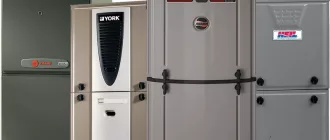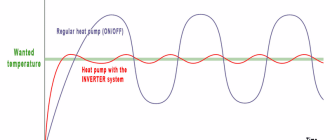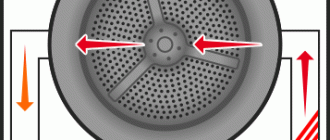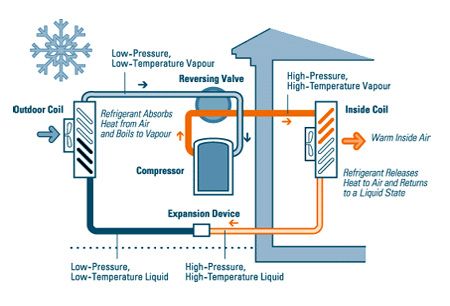
Understanding the Generations of Heat Pumps: How to Identify and Classify Your Model
Classifying your heat pump can be a challenging task, especially if you’re not familiar with the terminology. But don’t worry, we’re here to help. By understanding the different generations of heat pumps, you’ll be able to determine which one is yours.
A heat pump is a device that transfers heat from one place to another, providing both heating and cooling capabilities. Over the years, heat pump technology has evolved, resulting in different generations of heat pumps.
Each generation of heat pump comes with its own set of features and benefits. The first-generation heat pumps were simple and basic, providing limited heating and cooling capabilities. As technology advanced, second-generation heat pumps emerged, offering better efficiency and performance.
Generation 1: The Pioneers
The first generation of heat pumps paved the way for the modern heating and cooling systems we enjoy today. These early pioneers were the true trailblazers, introducing the world to the concept of utilizing the power of heat transfer to regulate indoor temperatures.
During this initial generation, heat pumps were characterized by their innovative technology and limited functionality. They were designed to provide basic heating and cooling capabilities to homes and buildings, but lacked the advanced features and efficiency of later generations.
Despite their limitations, Generation 1 heat pumps played a crucial role in establishing the foundation for future advancements. They laid the groundwork for subsequent generations to build upon, setting the stage for the rapid evolution of heat pump technology.
One of the key features of Generation 1 heat pumps was their reliance on traditional refrigerants such as R-22. While effective at the time, these refrigerants were later found to contribute to ozone depletion and were subsequently phased out in favor of more environmentally friendly alternatives.
Although Generation 1 heat pumps may not have the same level of performance and efficiency as their successors, they deserve recognition for sparking the initial interest in energy-efficient heating and cooling solutions. Without these pioneering systems, we would not be enjoying the advanced heat pump technology available today.
So, if you have a Generation 1 heat pump, consider yourself a proud owner of a piece of history. While it may not have all the bells and whistles of newer models, it represents the early beginnings of a technology that has revolutionized the way we heat and cool our spaces.
Generation 2: The Innovators
Generation 2 heat pumps were characterized by their advanced heat transfer capabilities, enhanced energy efficiency, and improved durability. Their innovative design allowed for greater control over air quality, temperature regulation, and overall performance. These heat pumps were truly a breakthrough in heating and cooling technology.
One of the key features that set Generation 2 heat pumps apart was their ability to adapt to the specific needs of individual users. Whether you wanted to heat a small room or service a large commercial space, these heat pumps could be tailored to suit your requirements. This level of customization was unmatched in the industry and gave users the freedom to control and optimize their heating experience.
The Innovators were also pioneers in sustainability, with Generation 2 heat pumps boasting impressive energy efficiency ratings. By efficiently utilizing heat from the environment, these heat pumps not only reduced energy consumption but also helped lower utility bills for users. They were a shining example of how technology could be harnessed to tackle climate change and promote a greener future.
In conclusion, Generation 2 heat pumps represented a significant leap forward in heat pump technology. Their innovative features, adaptability, and energy efficiency allowed users to experience heating and cooling like never before. Whether you were looking to upgrade your existing system or explore the latest advancements in heating technology, Generation 2 heat pumps were a class of their own.
Generation 3: The Game Changers
When it comes to heat pumps, Generation 3 is where the game truly changes. These innovative pumps take energy efficiency to a whole new level, providing you with unmatched comfort and savings. If you’re looking for a heat pump that will revolutionize your heating and cooling experience, look no further than Generation 3.
One of the key features of Generation 3 heat pumps is their advanced technology. These pumps incorporate cutting-edge sensors and smart algorithms to optimize performance and improve energy efficiency. With Generation 3, you can expect precise temperature control, reduced energy consumption, and lower utility bills.
But what truly sets Generation 3 apart is its ability to adapt to your specific needs. These pumps are equipped with intelligent systems that automatically adjust their operation based on factors such as weather conditions, occupancy, and your personal preferences. This means that your heat pump will always deliver the perfect amount of heating or cooling, ensuring optimal comfort and energy savings.
Another game-changing feature of Generation 3 heat pumps is their enhanced durability and reliability. These pumps are built to last, with high-quality components and robust construction. They are designed to withstand extreme weather conditions and require minimal maintenance, making them a cost-effective and hassle-free choice for your heating and cooling needs.
| Unmatched energy efficiency |
| Customizable comfort settings |
| Increased durability and reliability |
| Smart technology for optimal performance |
| Reduced environmental impact |
So, if you’re ready to take your heating and cooling to the next level, it’s time to upgrade to Generation 3. With its game-changing features and benefits, a Generation 3 heat pump is truly in a class of its own. Don’t miss out on the opportunity to experience the future of home comfort. Explore Generation 3 heat pumps today and find the perfect fit for your needs.
Generation 4: The Cutting Edge
If you thought your heat pump couldn’t get any better, think again. Introducing Generation 4, the cutting-edge innovation that will revolutionize the way you experience heating and cooling.
With Generation 4, the future is here. This state-of-the-art heat pump combines advanced technology, enhanced energy efficiency, and unmatched performance to deliver the ultimate heating and cooling solution for your home or business.
So, what sets Generation 4 apart from the rest? Let’s dive into its incredible features:
| Smart Thermostat Integration | Control your heat pump from anywhere, anytime. With smart thermostat integration, you can easily adjust the temperature and settings of your heat pump using your smartphone or connected device. |
| Improved Energy Efficiency | Save on your energy bills with Generation 4’s improved energy efficiency. This advanced heat pump utilizes the latest technology to minimize energy consumption without compromising on performance. |
| Quiet Operation | Say goodbye to noisy heat pumps. Generation 4 is designed to operate quietly, ensuring a peaceful environment for you and your family. |
| Enhanced Air Quality | Breathe cleaner air with Generation 4. This cutting-edge heat pump includes advanced filters and purification systems that remove allergens, pollutants, and odors from the air. |
| Sleek and Modern Design | Generation 4 doesn’t just provide exceptional performance, it also adds a touch of elegance to your space. Its sleek and modern design will seamlessly blend with any interior. |
Upgrade to Generation 4 and experience a new level of comfort, efficiency, and reliability. Don’t miss out on the future of heat pump technology.
Generation 5: The Future
As technology continues to advance at a rapid pace, the heat pump industry has not been left behind. Generation 5 heat pumps represent the cutting edge of innovation and efficiency in the heating and cooling world.
With the latest advancements in heat pump technology, Generation 5 heat pumps offer unparalleled performance and energy savings. These state-of-the-art systems are designed to provide optimal comfort while minimizing energy consumption.
One of the key features of Generation 5 heat pumps is their intelligent heat control. These systems are equipped with advanced sensors and algorithms that constantly monitor and adjust the heat output to match the required temperature. This not only ensures precise and consistent heating, but also maximizes energy efficiency.
Another innovative feature of Generation 5 heat pumps is their integration with smart home technology. These pumps can be connected to your home’s Wi-Fi network, allowing you to control and monitor the system remotely using your smartphone or tablet. With just a few taps on your device, you can adjust the temperature, schedule heating cycles, and even receive real-time energy usage data.
In addition to their advanced features, Generation 5 heat pumps are also designed with sustainability in mind. These systems use environmentally-friendly refrigerants that have a lower impact on the environment compared to traditional heat pumps. By choosing a Generation 5 heat pump, you are not only saving on your energy bills, but also contributing to a greener future.
So, if you’re looking to invest in a heat pump that combines the latest technology, energy efficiency, and sustainability, Generation 5 is the future. Upgrade to Generation 5 and experience the next level of heating and cooling comfort for your home.
Performance Comparison: Generation 1 vs. Generation 5
When classifying your heat pump, it’s important to take into account the generation it belongs to. While all generations of heat pumps provide effective heating and cooling capabilities, there are significant performance differences between Generation 1 and Generation 5.
Generation 1 heat pumps were the first to be introduced in the market. These units were equipped with basic technology and had a limited range of features. They provided reliable heating and cooling but lacked the advanced capabilities found in later generations.
In contrast, Generation 5 heat pumps are the latest and most advanced models available. They incorporate cutting-edge technology and offer a wide range of features designed to optimize performance. Generation 5 heat pumps are more energy-efficient, have enhanced temperature control, and feature advanced noise reduction systems.
In terms of energy efficiency, Generation 5 heat pumps outperform Generation 1 models by a significant margin. The advanced technology used in Generation 5 heat pumps allows for precise temperature control, resulting in lower energy consumption and reduced utility bills.
Furthermore, Generation 5 heat pumps have improved noise reduction systems, making them much quieter compared to their predecessors. This is especially important for homeowners who want a comfortable environment without the distraction of a noisy heat pump.
Overall, while Generation 1 heat pumps are still viable options for heating and cooling, Generation 5 heat pumps undoubtedly offer superior performance, energy efficiency, and advanced features. To ensure you get the most out of your heat pump, consider upgrading to a Generation 5 model.
Energy Efficiency: Generation 2 vs. Generation 4
When it comes to heating your home, having an efficient heat pump is crucial. With rising energy costs and environmental concerns, it’s important to choose a pump that not only meets your heating needs but also offers energy savings. One way to determine the energy efficiency of your heat pump is by looking at its generation.
Generation 2:
The second generation heat pumps were a significant improvement from the first generation models. They were designed to be more energy efficient, with better insulation and improved technology. These pumps offered higher coefficients of performance (COP), which means they produced more heat for a given amount of energy input. This resulted in lower energy bills and reduced environmental impact.
Despite their advancements, however, the second generation heat pumps still had some limitations. They were not as efficient as the later generations and their ability to work in extreme weather conditions was limited.
Generation 4:
The fourth generation heat pumps represent the latest advancements in heat pump technology. These pumps are even more energy efficient than the previous generations, offering greater savings and reduced carbon footprint. They are designed to work efficiently in a wider range of weather conditions, including extreme cold and hot temperatures.
One of the key features of the fourth generation heat pumps is the use of variable speed compressors. These compressors adjust their speed based on the heating load, resulting in more efficient operation and better energy savings. The fourth generation heat pumps also come with advanced control systems that allow for precise temperature control and optimization.
So, whether you have a second generation heat pump or are considering upgrading to a fourth generation model, it’s important to understand the energy efficiency benefits of each generation. By choosing a more efficient pump, you can save on energy costs and reduce your environmental impact.
Make the smart choice for your home heating needs. Upgrade to a fourth generation heat pump and start reaping the benefits of improved energy efficiency!
Noise Levels: Generation 3 vs. Generation 5
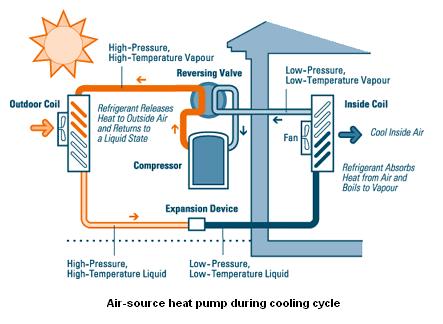
When it comes to choosing the right heat pump for your home, one of the factors you should consider is the noise level. Generation 3 heat pumps are known for their quiet operation, providing you with a peaceful environment both indoors and outdoors. With advanced noise reduction technology, these heat pumps ensure that you can enjoy the comfort they provide without any distractions.
On the other hand, Generation 5 heat pumps take noise reduction to a whole new level. Thanks to the latest innovations in heat pump technology, Generation 5 heat pumps operate almost silently. With noise levels as low as 45 decibels, these heat pumps are perfect for bedrooms, living rooms, or any other area where peace and quiet are a top priority.
Choosing the right generation of heat pump for your home depends on your specific needs and preferences. If you value a quiet environment and minimal noise disturbance, Generation 5 heat pumps are the perfect choice. However, if you are looking for a heat pump that provides great performance with reduced noise levels, Generation 3 heat pumps are the way to go.
No matter which generation of heat pump you choose, you can be confident that you will enjoy the benefits of efficient heating and cooling in your home. So take the time to classify your heat pump and make the right choice for yours!
Installation Process: Generation 1 vs. Generation 3
When it comes to installing heat pumps, understanding the differences between Generation 1 and Generation 3 models is crucial. The installation process can vary significantly depending on which generation of heat pump you have.
Generation 1 heat pumps typically require a more involved installation process compared to Generation 3 models. This is because Generation 1 heat pumps often have more complex components and may require additional wiring or modifications to your existing HVAC system.
On the other hand, Generation 3 heat pumps have been designed with ease of installation in mind. These newer models often incorporate advancements in technology and streamlined features that make the installation process quicker and simpler. In many cases, Generation 3 heat pumps can be easily installed by HVAC professionals without the need for major modifications.
Furthermore, Generation 3 heat pumps often come with detailed installation instructions and user-friendly interfaces that guide homeowners through the process. This not only simplifies the installation for professionals but also empowers homeowners to take a more active role in the setup and maintenance of their heat pump system.
Whether you have a Generation 1 or Generation 3 heat pump, it is important to consult the manufacturer’s guidelines and seek professional assistance when needed. Proper installation ensures optimal performance and efficiency, prolongs the lifespan of your heat pump, and reduces the likelihood of breakdowns or costly repairs.
So, no matter the generation of your heat pump, understanding the installation process and seeking expert help when necessary will keep your system running smoothly and efficiently for years to come.
Maintenance and Service: Generation 2 vs. Generation 4
When it comes to the maintenance and service of your heat pump, it’s important to understand the differences between Generation 2 and Generation 4. While both generations offer efficient heating and cooling solutions for your home, there are some important distinctions to be aware of.
In Generation 2 heat pumps, regular maintenance is key to ensure optimal performance. It is recommended to have a professional service the heat pump at least once a year. This includes cleaning the coils, checking the refrigerant levels, and inspecting the electrical connections. Regular maintenance helps prolong the lifespan of the heat pump and ensures it continues to operate at its highest efficiency.
Generation 4 heat pumps, on the other hand, are equipped with advanced technology that allows for self-diagnosis and remote monitoring. This means that maintenance can often be done more efficiently and conveniently. Generation 4 heat pumps can provide real-time data to the service provider, allowing them to quickly identify and address any issues that may arise. This can help minimize downtime and potential disruptions to your comfort.
When it comes to servicing Generation 4 heat pumps, it is still recommended to have regular check-ups performed by a professional. This allows for preventative maintenance and early detection of any potential problems. Additionally, professional maintenance ensures that the heat pump continues to operate at its highest efficiency and performance.
Regardless of the generation, regular maintenance and service are essential for maximizing the lifespan and performance of your heat pump. Whether you have a Generation 2 or Generation 4 heat pump, taking care of your investment will ensure that it continues to provide you with efficient heating and cooling for years to come.
Cost Analysis: Generation 1 vs. Generation 2
When it comes to determining the cost of a heat pump, the generation is a significant factor. Understanding the cost differences between Generation 1 and Generation 2 heat pumps is essential for making an informed decision.
Generation 1 heat pumps, while initially cost-effective, may come with higher long-term expenses. These early models often lack the energy efficiency and advanced technology found in Generation 2 heat pumps. As a result, they can consume more energy, leading to increased utility bills over time.
Generation 2 heat pumps, on the other hand, have undergone significant advancements in efficiency and technology. These state-of-the-art models are designed to minimize energy consumption, saving you money on monthly operating costs. Although Generation 2 heat pumps may have a higher upfront cost, they offer long-term savings and superior performance.
When considering the cost analysis of Generation 1 vs. Generation 2 heat pumps, it’s important to factor in the potential energy savings. Generation 2 heat pumps can significantly reduce your heating and cooling expenses, making them a cost-effective solution in the long run. Additionally, many Generation 2 heat pumps come with warranties and maintenance packages, providing peace of mind and protecting your investment.
In conclusion, while Generation 1 heat pumps may be more affordable initially, Generation 2 heat pumps offer greater energy efficiency, decreased operating costs, and improved performance. By investing in a Generation 2 heat pump, you can enjoy long-term savings and a more comfortable living environment.
Eco-Friendliness: Generation 3 vs. Generation 4
When it comes to heat pumps, classifying them into different generations can help you understand their eco-friendliness and energy efficiency. In this article, we will compare the eco-friendliness of Generation 3 heat pumps with Generation 4 heat pumps.
Generation 3 heat pumps are known for their energy efficiency and ability to produce a comfortable indoor environment while minimizing the impact on the environment. These heat pumps use advanced technology to extract heat from the air or ground and transfer it indoors. By using renewable energy sources, such as air or ground heat, Generation 3 heat pumps help reduce electricity consumption and greenhouse gas emissions.
On the other hand, Generation 4 heat pumps take the eco-friendliness to the next level. They are equipped with even more advanced features and technologies that further improve energy efficiency and reduce environmental impact. These heat pumps utilize innovative technologies like variable speed compressors and smart controls to optimize their performance and minimize energy usage. Additionally, Generation 4 heat pumps often come with additional features such as integrated solar panels or geothermal capabilities, allowing them to harness clean energy sources and further reduce their carbon footprint.
| Generation 3 | High |
| Generation 4 | Very High |
Overall, both Generation 3 and Generation 4 heat pumps are eco-friendly choices for heating and cooling your home. However, if you are looking for the most advanced and energy-efficient option that minimizes your carbon footprint, Generation 4 heat pumps are the way to go. They combine innovative technologies, renewable energy sources, and smart controls to provide superior comfort while minimizing environmental impact.
Consider upgrading to a Generation 4 heat pump today and take a step towards a more sustainable and eco-friendly future!
Smart Technology Integration: Generation 1 vs. Generation 5
When it comes to heat pump technology, it’s important to understand the different generations available on the market. Generation 1 and Generation 5 are two of the most popular options, each with its own unique features and benefits.
Generation 1:
- Basic smart technology integration
- Limited functionality and control options
- Entry-level affordability
- Simplified user interface
- Lower energy efficiency compared to newer generations
Generation 5:
- Advanced smart technology integration
- Enhanced functionality and control options
- Improved energy efficiency
- Higher upfront cost, but long-term savings
- Intuitive user interface with customizable settings
- Compatibility with other smart home devices
Upgrading to a Generation 5 heat pump can provide you with a wide range of benefits. The advanced features and improved energy efficiency will not only help you save on your energy bills but also provide you with greater control and comfort in managing your home’s heating and cooling.
So, whether you have a Generation 1 or Generation 5 heat pump, understanding the smart technology integration and features can help you make the most of your investment and ensure your home stays comfortable all year round.
User-Friendly Interface: Generation 2 vs. Generation 3
When it comes to classifying your heat pump, understanding the differences between Generation 2 and Generation 3 is crucial. One of the key areas where these generations differ is the user interface.
Generation 2 heat pumps usually have a more basic interface, with limited options and less intuitive controls. While they can still effectively heat and cool your space, the user experience may be slightly less user-friendly compared to Generation 3.
On the other hand, Generation 3 heat pumps are equipped with a more advanced and user-friendly interface. With a wider range of options and more intuitive controls, operating your heat pump becomes a breeze. The user interface is designed to be both functional and visually appealing, making it easier for you to control and customize your heating and cooling settings.
Whether you have a Generation 2 or Generation 3 heat pump, understanding the interface will help you maximize its efficiency and performance. By familiarizing yourself with the controls and features, you can easily adjust the temperature, set schedules, and optimize your comfort.
So, no matter which generation is yours, having a user-friendly interface ensures that your heat pump is easy to use and control. It allows you to make the most out of its advanced features and enjoy a comfortable environment all year round.
Warranty and Support: Generation 4 vs. Generation 5
When it comes to the warranty and support options for your heat pump, it’s important to understand the differences between Generation 4 and Generation 5 models. Each generation offers its own unique benefits and features, so you can choose the one that best suits your needs.
| Generation 4 | Typically comes with a standard 5-year warranty for parts and labor. | Typically includes phone and email support for technical issues. |
| Generation 5 | Offers an extended 10-year warranty for added peace of mind. | Includes phone, email, and in-person support for technical issues. |
With Generation 4 models, you’ll receive a standard 5-year warranty that covers parts and labor. This means that if anything goes wrong with your heat pump during that time, the manufacturer will be responsible for repair or replacement.
Support options for Generation 4 models typically include phone and email support. If you have any technical issues or questions, you can reach out to the manufacturer’s support team for assistance.
On the other hand, Generation 5 models come with an extended 10-year warranty. This means that you can have peace of mind knowing that your heat pump is protected for a longer period of time.
In addition to the extended warranty, Generation 5 models also offer more support options. Along with phone and email support, you’ll have access to in-person support. This can be especially helpful if you’re experiencing complex issues that can’t be easily resolved over the phone or through email.
Choosing between Generation 4 and Generation 5 models will depend on your specific needs and preferences. If you value a longer warranty and a wider range of support options, Generation 5 may be the right choice for you. However, if you’re on a tighter budget and don’t require as extensive support, Generation 4 may still be a great option.
Whichever generation you choose, it’s important to consider the warranty and support options to ensure that you’re making a smart investment in your heat pump. This will help to protect your investment and provide you with peace of mind for years to come.
Q&A:
What is a heat pump?
A heat pump is a device that transfers heat energy from a source to a destination, typically for the purpose of heating or cooling a space.
How does a heat pump work?
A heat pump works by using a refrigerant to absorb heat from the source, such as the air or the ground, and then transferring that heat to the destination, such as the indoors of a home. It does this by compressing and then expanding the refrigerant, which causes it to release and absorb heat.
What are the different generations of heat pumps?
The different generations of heat pumps refer to the advancements and improvements made in the technology over time. The first generation heat pumps were basic and had lower efficiency, while newer generations have higher efficiency, better performance, and more advanced features.
How do I determine the generation of my heat pump?
To determine the generation of your heat pump, you can check the model number or look for any labels or documentation that came with the unit. You can also contact the manufacturer or a professional HVAC technician for assistance.
What are the benefits of a newer generation heat pump?
Newer generation heat pumps typically have higher efficiency, which can lead to lower energy bills. They also often have more advanced features and technologies, such as variable-speed compressors and smart controls, that can improve performance, comfort, and convenience.


